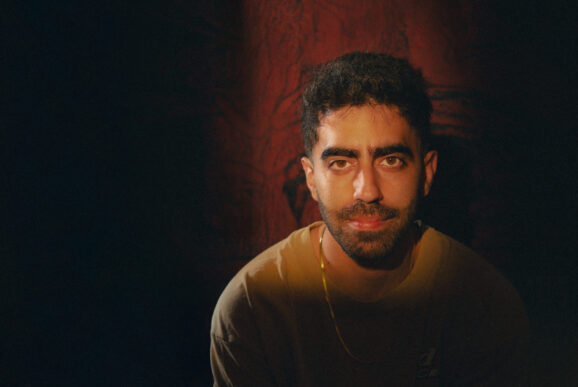Drummer/composer Jeff Cosgrove uses his sixth album as a leader to celebrate the music of former collaborator, bassist/composer William Parker. On History Gets Ahead of the Story, the drummer offers a unique take on the bassist’s long-standing quartet repertoire by rearranging it for the classic organ trio. Saxophonist/flutist/composer Jeff Lederer (Matt Wilson Quartet and Bobby Sanabria’s Multiverse Orchestra) and organist John Medeski (Medeski, Martin & Wood and Hudson) push the envelope on some of Parker’s most recognizable compositions. This is the first album to feature William Parker’s music without Parker providing the undercurrent with his singular bass sound. However, don’t associate this with those classic organ trio albums of the ‘60s and ‘70s. This is more challenging music, appropriate for the history of these players who are more free-form oriented. For them, though, this is restrained, composed music, the beauty of which lies in the interplay between the trio; melodies and counterpoint from Medeski and Lederer, each of whom unleash several formidable statements while Cosgrove never plays intrusively but rather holds it together in subtle fashion.
Although the majority of the drummer/ bandleader’s recording catalog has focused on spontaneous composition, he is no stranger to celebrating innovative composers in their lifetime. Motian Sickness – The Music of Paul Motian, Cosgrove’s critically acclaimed 2011 debut as a leader, was released shortly before Motian’s passing. Much like the Motian Sickness project, where Paul Motian was instrumental to Cosgrove in helping with charts and giving him unlimited freedom in working with his music, Parker was involved in providing charts and guidance to the drummer. “I remember talking with William about his quartet music as we were walking to dinner one night and what an influence that band and music were on me,” says Cosgrove. “He chuckled and simply replied: ‘those guys were pretty good at reading my mind.’”
Over the course of a couple of years, Parker provided musical scores to Cosgrove knowing little of how the project would take shape. Cosgrove released two critically acclaimed recordings featuring William Parker and long-standing collaborator, pianist Matthew Shipp – Alternating Current (2014) and Near Disaster (2019). With the encouragement of Parker and Shipp, the drummer began to really push the boundaries with these performances and recordings, understanding how to bring form to the formless. It was in this time working with Shipp and Parker that the idea for this album came to Cosgrove and started to germinate. “There is no denying William’s place at the vanguard of creative music,” says Cosgrove of his former rhythm section mate. “But, he is also an inspiring composer which I feel often gets overlooked. He writes beautiful and very tuneful pieces that leave a lot of room for improvisational excitement.” These ten compositions range in length from two minutes to ten minutes, all enjoyable in their unpredictable shifts.
Parker’s long-standing quartet with Lewis Barns, Rob Brown, and Hamid Drake had a huge impact on Cosgrove’s development. Cosgrove felt that this project was almost like a calling, realizing that there is so much flexibility in the way Parker writes that he felt that the music could take a different approach. As with any trio, the key is familiarity and chemistry. Cosgrove and Lederer have played together for several years in various configurations and Cosgrove tapped him as key to this project.
You’ll hear Lederer blow aggressively and freely on tenor on such tracks as the opening “O’Neal’s Porch” rather spiritually on “Corn Meal Dance,” and bluesy and free on “Gospel Flowers” and the closing “Harlem.” He is masterful on flute in dialogue with Medeski’s counters on “Little Bird” while haunting on bass clarinet and soprano sax on “Ghost” weaving in and out of Medeski’s swirling sound. Lederer chooses soprano again for “Moon” which begins with one of the distinctive melodies before the melodic, somewhat mysterious soloing begins. “Things Fall Apart” follows in a similar vein before “Wood Flute Song” becomes a showcase for each member. “Purcell’s Lament” is a masterclass in soprano saxophone tone, underscored by Medeski’s soft, distinctive chords.
Organist John Medeski showcases his musical versatility and stunning sound on this album, as expected. He embraces the classic organ trio while pushing convention, bluesy and inventive when called for, supportive as needed. Lederer and Medeski have a history through drummer Matt Wilson but Medeski and Cosgrove had never met in person prior to arriving at Applehead Studios in upstate New York.
Cosgrove is renowned for his unexpected configurations. Unlike most jazz musicians, he’s not city-based, instead choosing rural surroundings – primarily in West Virginia and now in Middletown, Maryland. Some attribute is open, layered, textured, uncluttered sound to his fondness for these rural locales. Whatever the case, this highly creative collaboration works well – a great balance between the free form and structured composition.
Photo by Joe Crocetta








